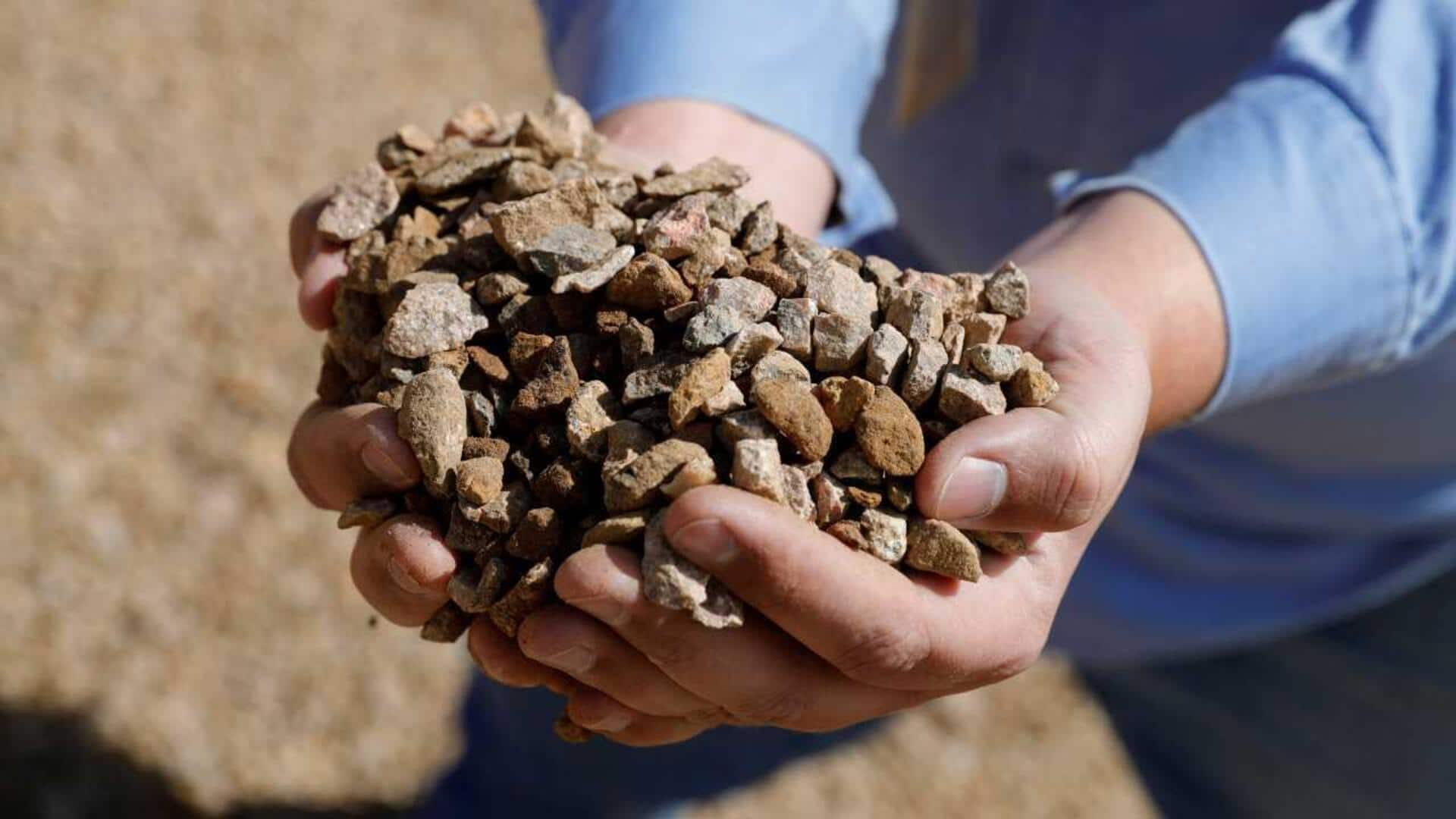
Centre to launch ₹7,350cr scheme to produce rare-earth magnets domestically
What's the story
The Indian government is set to launch a ₹7,350 crore scheme to boost the domestic production of sintered rare earth permanent magnets (REPMs), according to Business Standard. The move comes after China imposed restrictions on REPM exports in April, disrupting supplies to India's automobile and electronics sectors. The new initiative aims to create an indigenous manufacturing ecosystem with an annual capacity of up to 6,000 tons.
Manufacturing goals
Scheme aims to create domestic value chain for magnets
The scheme, tentatively titled 'Scheme to Promote Sintered Rare Earth Permanent Magnet Manufacturing in India,' will run for seven years. It seeks to create a domestic value chain from NdPr (neodymium-praseodymium) oxide to sintered NdFeB (neodymium-iron-boron) magnets. These magnets are essential for industries like automobiles, electronics, wind energy, and defense. The production process involves mining, beneficiation, processing, extraction, refining to rare earth oxide, conversion to metal and alloy, and finally magnet manufacturing.
Financial support
Government plans to set up 5 integrated REPM manufacturing units
The proposed scheme will incentivize facilities that can convert rare earth oxide into metal, metal into alloy, and alloy into magnet. Currently, India lacks the technology and infrastructure for these processes. The government plans to support the establishment of five integrated REPM manufacturing units under this scheme. Each unit will have a capacity of up to 1,200 tons per annum.
Support measures
Financial support for selected firms under scheme
Firms selected under this scheme will get two types of financial support. The first is a sales-linked incentive on the sale of sintered NdFeB magnets. The second is a capital subsidy for setting up integrated NdFeB manufacturing units in India. Currently, India imports nearly all its REPM requirements, with domestic demand estimated at around 4,010 tons per year. This is expected to double to 8,220 tons by 2030.
Cost considerations
Scheme includes 2-year gestation period for setting up facilities
The scheme also includes a two-year gestation period for setting up facilities and starting production. A capital subsidy of 15% on eligible investment made after April 1, 2025, will be provided to beneficiaries. "The capital cost of setting up the unit will be high as most of the plant and machinery needs to be imported from countries other than China at a relatively higher cost," one document states.
Tender process
Ministry of Heavy Industries will issue Request for Proposal (RFP)
The Ministry of Heavy Industries (MHI) will issue a Request for Proposal (RFP) through a Global Tender Enquiry (GTE) to invite bids for five integrated sintered REPM manufacturing facilities. The process will be conducted in a transparent manner using a Least Cost System with a "two-envelope" structure: technical and financial bids. Only those who qualify in the technical round will have their financial bids opened.